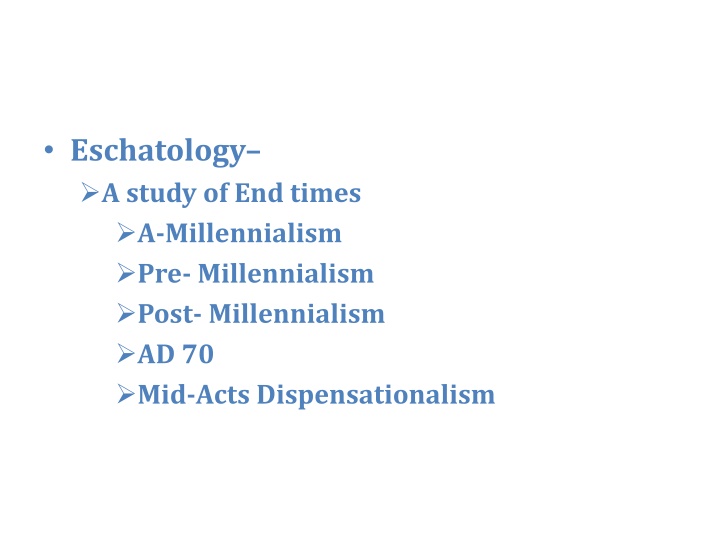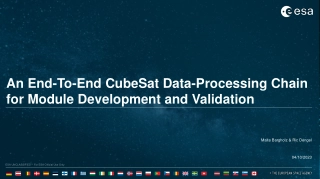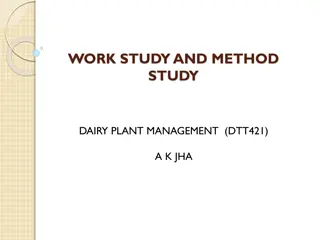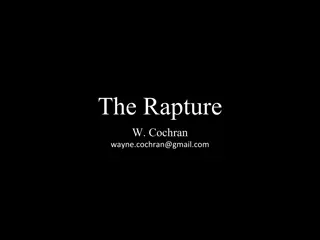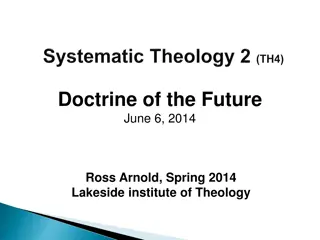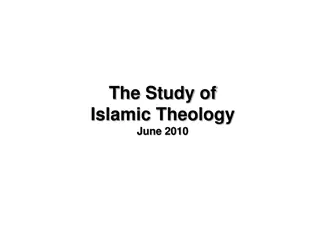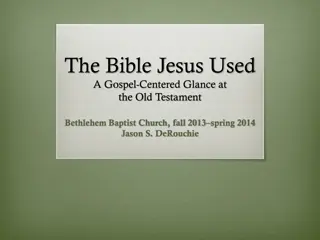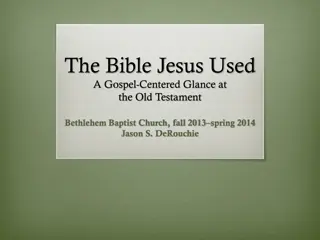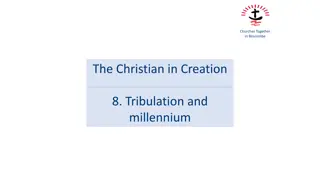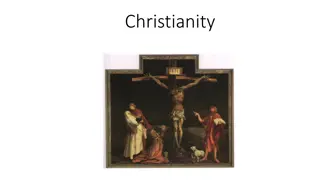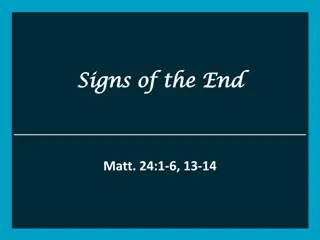Understanding Eschatology: A Study of End Times
A comprehensive exploration of Eschatology focusing on different Millennialism perspectives, Dispensationalism, and the unique views on the Bible within this theological framework. Learn about the major premises and beliefs surrounding Dispensationalism, as well as its implications for the church and the interpretation of scriptures.
Download Presentation

Please find below an Image/Link to download the presentation.
The content on the website is provided AS IS for your information and personal use only. It may not be sold, licensed, or shared on other websites without obtaining consent from the author.If you encounter any issues during the download, it is possible that the publisher has removed the file from their server.
You are allowed to download the files provided on this website for personal or commercial use, subject to the condition that they are used lawfully. All files are the property of their respective owners.
The content on the website is provided AS IS for your information and personal use only. It may not be sold, licensed, or shared on other websites without obtaining consent from the author.
E N D
Presentation Transcript
Eschatology A study of End times A-Millennialism Pre- Millennialism Post- Millennialism AD 70 Mid-Acts Dispensationalism
About Dispensationalism About the Bible The King James Bible is god s perfectly preserved words in our English Language Inerrant About The Origin of Dispensationalism Dispensationalism is a bible truth; Dispensation is a bible word . Paul used Dispensation 4 times in inerrant KJV 1 Cor 9:17, Eph 1:10, Eph 3:2, Col 3:2 Paul did not write or speak in English Paul used the Greek word oikonomia translated Dispensation 5 times. Add Titus 1:7
Major Premises So, because the present salvation of Uncircumcised Gentiles was never foretold by any Old Testament prophet, or even by the Lord Jesus Christ Himself, this present "dispensation of grace" covers an UNPROPHESIED time period which the apostle Paul refers to as "the mystery". Dispensationalism is based upon the teaching that the present body of Christ began with the apostle Paul, when he was saved during the mid-Acts period. Acts 2:47 Eph 1:22-23 The body is in existence on Pentecost, 6 to 10 years prior to Paul s conversion.
Major Premises And because the nation of Israel still rejects the Lord Jesus Christ, we know that Israel's prophesied kingdom has not yet been established. Nor can it even be "at hand", until Israel as a nation is ready to accept the Lord Jesus Christ. Man over powers God Matt 3:1-21 John the Baptist, Matthew 4:17 Jesus Matthew 10:7 And Jesus told the 12 to lie. John the Baptist and Jesus preached a lie.
Beliefs About the Church Dispensationalism is rooted in the belief that scriptures which apply to Israel do not apply to the present church. Israel and Gentiles remain separated Two Gospels (Rom 1:16 Gospel)
Read Eph 2 11 , ye Paul was a Jew 12, 13 14 made both one, broken down the middle wall of partition between us; 15 of twain one new man 16 reconcile both 17 preached peace to you and to them. 18 both have access by one Spirit Father. 19 no more fellowcitizens .; 20 , 21, 22 ye also are builded together .
Basic Belief In addition, mid-Acts Dispensationalists also believe that since neither the Old Testament or the Four Gospels ever mention the possibility that Uncircumcised Gentiles could be saved through Israel's fall, those scriptures could not be written directly to the church today.
About the 4 Gospels The gospel of the kingdom that the apostles were preaching does not apply to this present dispensation, From Matthew to John, the same Kingdom of God is used 54 times in KJV From Acts to Jude The Apostle Paul uses the words Kingdom of God 13 times in the KJV The text indicates no descriptive difference
The Bible says: Old Testament Genesis 26:4 and in thy seed shall all the nations of the earth be blessed; KJV New Testament Mark 13:10 Luke 24:47 The response of the Apostle Paul --Gal 3:8 And the scripture, foreseeing that God would justify the heathen through faith, preached before the gospel unto Abraham, saying, In thee shall all nations be blessed.
Paul alone Christ appears to Paul and gives to Paul alone the mystery which had been hidden for more than 4000 years. (Rom 16:25) The 12 Matt 8:10; Mk 4:11; Luke 8:10 Jesus Promises John14:26 John 16:13 What did Jesus withhold for Paul? Paul does not concur: The Mystery of Christ Eph 3:5-6 now revealed holy apostles and prophets by the Spirit; 6 Gentiles should be fellowheirs, and of the same body, and partakers of his promise in Christ by the gospel:
Paul is the minister 14 Passages Acts 9:15 , to bear my name before Gentiles, and kings, and the children of Israel:" The 12--Matt 28:16-20; Mark 16:15-16 (All Nations) Acts 13:45-46 Jews saw the multitudes, 46 Then Paul and Barnabas the word of God should first have been spoken to you: lo, we turn to the Gentiles. A matter of order not content Does being a minister to the Gentiles necessitate a different gospel?
Mid-Acts Dispensationalism Baptism is a Jewish ritual So, in this present dispensation of grace, salvation is now being dispensed (or administered) to Gentiles by grace through faith alone. Paul did not practice what he preached and baptized the Jailer and Lydia. From what source did they learn about baptism Why the urgency the same hour of the night
Conclusion The origin of Dispensationalism cannot be found in the scripture. The N.T. Church did not separate Jew and Gentile The Mystery was given to both Paul and the 12 There is no difference between the Commission of Paul and the 12 There is no difference between the Gospel that Paul preached and that of the 12 False Doctrine
